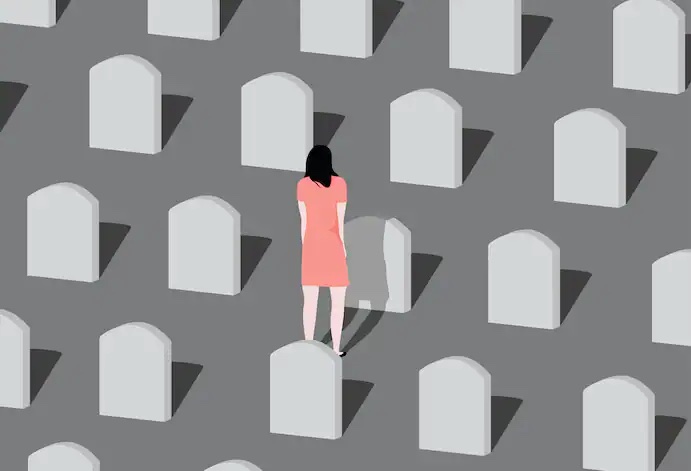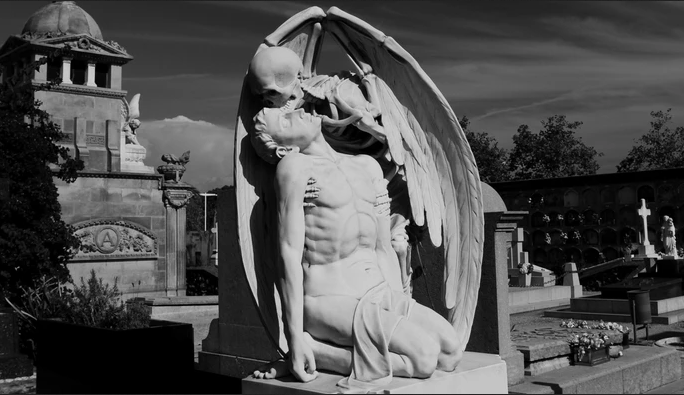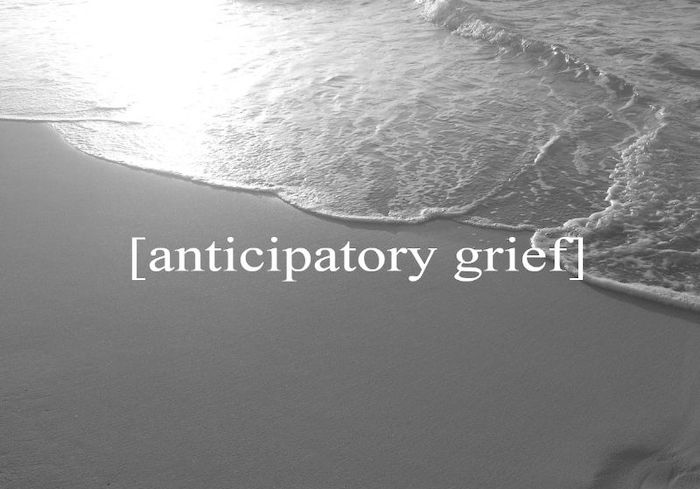— Preparing For The Road Ahead

The death of a spouse is devastating. There is the obvious sadness experienced due to the loss of a loved one. However, there is also the challenge of losing a life partner who helped you make various important decisions. For years, or perhaps decades, a couple likely worked together to tackle important decisions about their kids, home, health, vacations, and of course finances. After a spouse’s death there are still many important money choices that need to be made to prepare the surviving spouse for their future. Navigating through those responsibilities may seem overwhelming. Working through a financial checklist may make the process a bit more manageable. Below are ten steps to consider.
1) Obtain copies of the death certificate: Having a death certificate is essential to winding down the affairs of a deceased person. You will need to submit it under many situations, including each time you claim benefits like Social Security, life insurance proceeds, payable on death accounts, or veterans’ benefits.
The easiest way to obtain a death certificate is through the funeral home or mortuary at the time of the death. It’s advisable to ask for multiple official copies, usually at least 10, since many requests will require an original. For deaths that occurred within the past few months, you can also get a death certificate from your state’s Department of Health or Office of Vital Statistics.
2) Contact Your Advisors: If you work with a team of trusted advisors, such as an attorney, accountant, and financial advisor, you should reach out to them relatively early in the process. These professionals may have all the pertinent files regarding your family’s finances, so you don’t have to go searching for them.
Your attorney should have a copy of the original will in their office and can review it with you and discuss next steps. If probate is necessary, an attorney can guide you through the process and any necessary court filings. Finally, they can also help with determining if the deceased’s estate will cover existing debts in their name or what your liability may be.
Your accountant can address the various tax implications. Taxes for a deceased spouse should be filed and paid in the year of death. This includes filing Estate Tax Form 706 and any other forms that may need to be filed with federal, state, and local tax authorities.
Immediately following a spouse’s death, your financial advisor can help process the transfer and consolidation of certain accounts. For example, the funds from a deceased spouse’s IRA can rollover to the IRA of the surviving spouse. Additionally, accounts that were titled Transferred on Death or Joint Tenant With the Right of Survivorship will be transferred into the surviving spouse’s name. If the financial advisor also handled your insurance, they could work with you to get the death benefit from a life insurance policy in a timely manner.
The financial advisor can also coordinate with the attorney and CPA on various estate and planning matters. They may set up a designated estate account with funds for the executor of the estate to settle the deceased person’s unfinished affairs. If any trusts were established for estate planning purposes, the advisor can address how these fit into the broader estate plan and ensure they are funded and implemented correctly.
Looking forward, you should set up a planning meeting with your team of advisors to assess your new financial reality and share your goals for the future. Together, they will be able to put together a customized plan to reach those objectives. They may also be able to serve as a sounding board, helping to facilitate prudent decisions, and shouldering some of the responsibility your spouse shared while they were alive.
3) Contact The Social Security Administration: Be sure to reach out to the Social Security Administration (800-772-1213). You may be entitled to Social Security survivor benefits and you should also put the deceased person on the Social Security Master Death Index to prevent potential fraud. Additionally, you may want to speak to your financial advisor about coordinating social security benefits with your other financial and income goals.
4) Reach Out To Your Spouse’s Employer: In addition to informing the employer of your spouse’s death, it’s worth speaking with their human resources department about any potential benefits such as life and medical coverage and retirement or pension plans. There may also be compensation due, such as stock options or bonuses that were already earned. If your family was covered through your spouse’s medical insurance, you will need to ask how long you can continue that coverage. There is typically extended healthcare coverage through COBRA for 18 months. If your spouse belonged to a labor union, you should also contact the union to see if they offer any assistance.
If your spouse worked at several companies over their career, it may make sense to reach out to each to see if there are old retirement accounts or pensions that were never rolled over to an IRA. These funds may add up and should not be overlooked.
5) Update All Property Titles: It’s important to update all ownership documents to remove your spouse’s name, including your auto and homeowner’s insurance policies. When retitling your home, determine if the mortgage has insurance that would pay it off in the event of a death. To update the title of a property that is held jointly you must inform the Land Registry of the death and send them a completed “deceased joint proprietor” form (available on the government’s website) with an official copy of the death certificate.
6) Identify Your Spouse’s Debts: Make time to call each of your spouse’s creditors to determine its policies. Common debts may include a mortgage, credit cards, business loans, and student loans. You should cancel all credit cards in your spouse’s name and update any cards you held jointly.
7) Child Support or Alimony: If your spouse was previously married, their death likely terminates any existing spousal support order unless the parties had otherwise agreed in writing. Discussing the matter with your attorney is advisable to ensure it is handled correctly and all loose ends are tied.
8) Update Your Own Documents: After the death of your spouse, much of your previous financial planning will need to be updated or revised. This includes updating your beneficiaries across retirement accounts, insurance policies and revisiting your power of attorney and healthcare proxy to ensure the correct people are listed in case a need arises. You should also update your tax withholding status and medical coverage through your employer.
9) Keep An Eye On Your Mail: After such a traumatic experience, there will likely be some items that fell through the cracks. A good way to stay on top of closing out your spouse’s affairs is to pay close attention to the stream of letters you receive. Over time you will receive utility bills, charitable solicitations, account statements, subscriptions, and other pertinent items. You can deal with each item as it comes in. This will help alleviate the stress of trying to update everything all at once and will hopefully result in having everything updated within a few months’ time.
10) Consider Postponing Major Financial Decisions: On occasion, drastic changes need to take place immediately after the death of a spouse. For example, if the living arrangement of the surviving spouse is no longer sustainable then selling the family home may be required. However, if a matter is not pressing, then you should wait to act. Unfortunately, widows are preyed upon by unscrupulous salespeople in all lines of work. It’s important to get comfortable telling people that you are putting all major decisions on hold for a year while you get your bearings and heal emotionally. It may also be wise to enlist the help of a trusted family member or friend to serve as a sounding board when making choices about your financial future.
During the initial stages of the grieving process, you may feel like your life has been turned upside down. Your emotional, mental and physical condition has undoubtedly changed. However, over time, with the support of friends and family and the guidance of trusted advisors, you will be able to move forward from this difficult period in your life and prepare for what lies ahead.
Complete Article ↪HERE↩!






